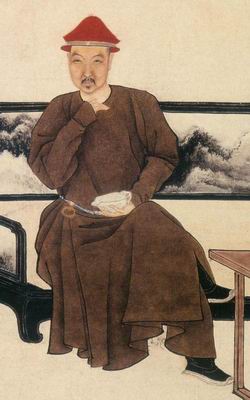1685 in poetry
Appearance
| |||
|---|---|---|---|
| +... |
Nationality words link to articles with information on the nation's poetry or literature (for instance, Irish or France).
Events
This section is empty. You can help by adding to it. (July 2010) |
Works published

- Henry Bold, translator, Latine Songs, with their English: and Poems, includes "Chevy Chase", a ballad, and Sir John Suckling's poem "Why so pale and wan fond lover?"[1]
- John Cutts, (later Baron Cutts), La Muse de Cavalier; or, An Apology for such gentleman as make poetry their diversion, not their business in a letter by a scholar of Mars to one of Apollo,[2] published anonymously[1]
- Sir William Davenant, The Seventh and Last Canto of the Third Book of Gondibert, published posthumously (see Gondibert 1651)[1]
- John Dryden and Jacob Tonson, Sylvae; or, The Second Part of Poetical Miscellanies, the second in a series of miscellanies published by Tonson; has translations from Virgil, Lucretius, Theocritus and Horace, mostly by Dryden (see also Miscellany Poems 1684, Examen Poeticum 1693, Annual Miscellany 1694, Poetical Miscellanies: Fifth Part 1704, Sixth Part 1709)[1]
- Nahum Tate, Poems by Several Hands, and on Several Occasions[1]
- Edmund Waller, Divine Poems[1]
- Samuel Wesley, Maggots; or, Poems on Several Subjects, Never Before Handled, published anonymously[1]
- John Wilmot, Earl of Rochester, Poems on Several Occasions. Written by a late Person of Honour, London: Printed for A. Thorncome, posthumously published[3]
English verses on the death of Charles II and coronation of James II
Charles II of England died on February 6; James II of England was crowned on April 23:
- Edmund Arwaker:
- Aphra Behn:
- John Dryden, Threnodia Augustalis, on the death of Charles II[1]
- Thomas Otway, Windsor Castle, on the death of Charles II; Otway died in April[1]

Other
- Emilie Juliane of Schwarzburg-Rudolstadt, German:
- Kuhlwasser in grosser Hitze des Creutzes, hymns; published in Rudolstadt
- Tägliches Morgen- Mittags- und Abendopfer, hymns; published in Rudolstadt
- Cotton Mather, An Elegy [...] on Nathanael Collins, English Colonial America (Massachusetts)[4]
Births
Death years link to the corresponding "[year] in poetry" article:
- February 10 – Aaron Hill (died 1750), English dramatist, poet and miscellaneous writer
- June 30 – John Gay (died 1732), English poet and dramatist
- December 17 – Thomas Tickell (died 1740), English poet and man of letters
- Mary Barber (died 1755), English poet and member of Jonathan Swift's circle
- Jane Brereton (died 1740), English poet notable as a correspondent to The Gentleman's Magazine
- William Diaper (died 1717), English poet of the Augustan era
- William Harrison (died 1713), English poet and diplomat
Deaths
Birth years link to the corresponding "[year] in poetry" article:
- January 18 – Wentworth Dillon, 4th Earl of Roscommon (born 1633), Anglo-Irish poet
- June 16 – Anne Killigrew (born 1660), English poet
- July 1 – Nalan Xingde (born 1655), Chinese Qing Dynasty poet most famous for his ci poetry
- October 12 – Gerard Brandt (born 1626), Dutch preacher, playwright, poet, church historian, biographer and naval historian
- Francesc Fontanella (born 1622), Catalan poet, dramatist and priest
See also
Notes
- ^ a b c d e f g h i j k l m Cox, Michael, editor, The Concise Oxford Chronology of English Literature, Oxford University Press, 2004, ISBN 0-19-860634-6
- ^ Clark, Alexander Frederick Bruce, Boileau+and+the+French+Classical+Critics+in+England&source=bl&ots=riSMnwEyAN&sig=vIZFHRatSiUEVSYrihbIOzCp4tA&hl=en&ei=XkJ3S_aHEMvf8QaOmOHDCg&sa=X&oi=book_result&ct=result&resnum=1&ved=0CAcQ6AEwAA#v=onepage&q=&f=false Boileau and the French Classical Critics in England (1660-1830), p 4, Franklin, Burt, 1971, ISBN 978-0-8337-4046-5, retrieved via Google Books on February 13, 2010
- ^ Web page titled "John Wilmot, Earl of Rochester (1647 - 1680)" at the Poetry Foundation website, retrieved April 11, 2009. Archived 2009-05-02.
- ^ Ludwig, Richard M., and Clifford A. Nault, Jr., Annals of American Literature: 1602–1983, 1986, New York: Oxford University Press
